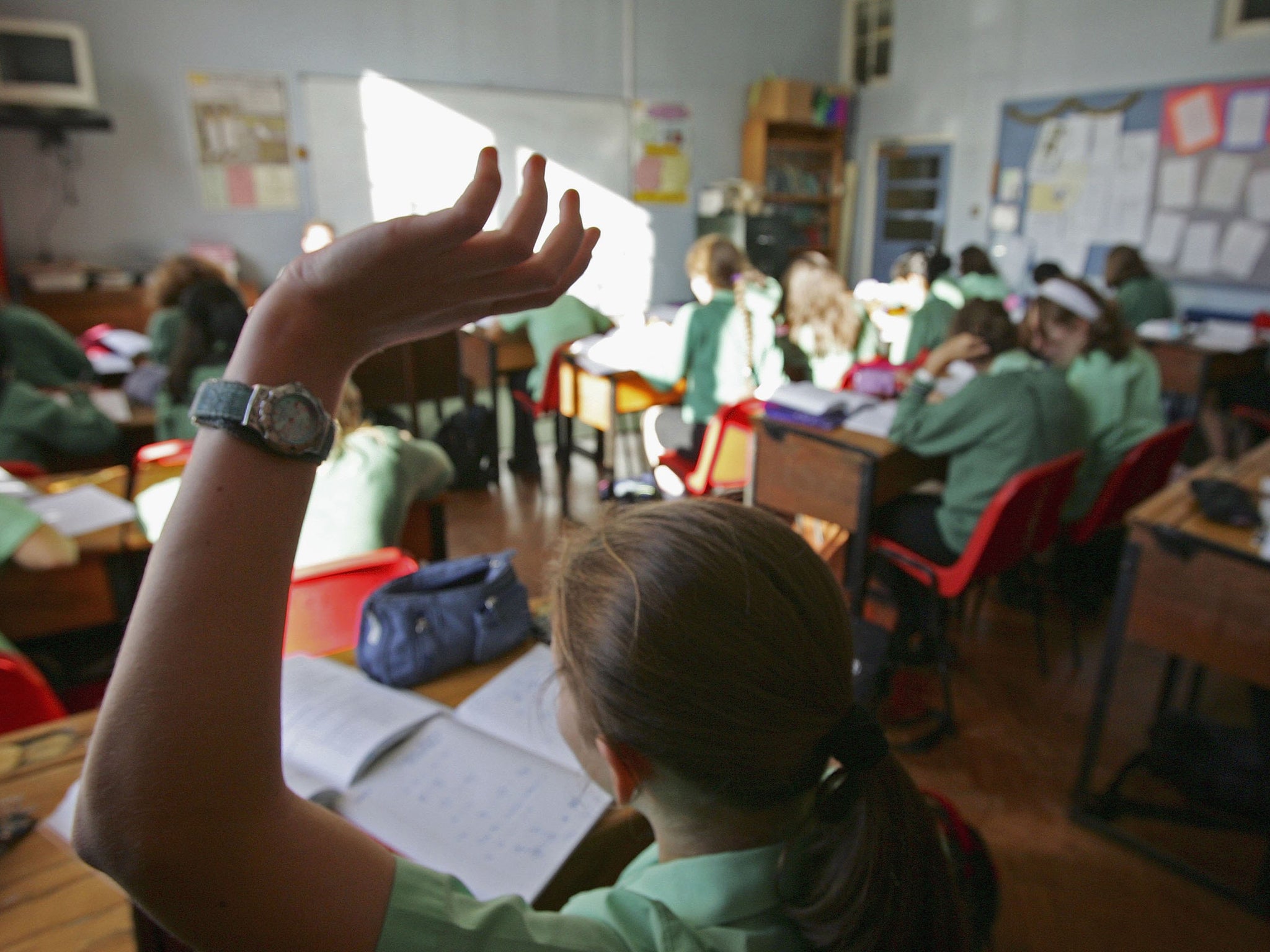There's no such thing as ‘having it all’, but young women should at least be able to watch ‘Love Island’ and still be feminists
We never ask if men are struggling to balance work and family and leisure, whether watching hours of programmes about sport impacts on their abilities to make sensible judgements and make the right life choices


What a groundbreaking week for women. Theresa May surprised critics with a confident speech at the Tory conference and, for the first time in over half a century, the Nobel Prize for physics was awarded to a woman – Professor Donna Strickland. This weekend, millions will be watching Jodie Whittaker as the first female Dr Who. Finally, Zoe Ball has become the first woman to present the UK’s top radio breakfast show – although she accepted a far lower salary than the bloke she replaced.
But do all these firsts have equal merit? Who is the best role model for young women, a groundbreaking physicist or a chatty forty-something who doesn’t even choose the records she introduces?
I attended a girls-only school, where career success was instilled into us from day one. Make no mistake, my headmistress considered opting for a career in journalism tacky, even low-rent, in the 1960s. Students were steered in the direction of university and the professions – teaching, nursing and law. Art was considered an easy option, so I abandoned it to study architecture, completely male dominated in those days. Anything involving popular culture was denigrated, a source of employment for the easily pleased and less rigorous minds. My (female) teachers had worked hard to get their jobs and they regarded anything less as beneath us. Put bluntly, they were snobs.
It’s hard to believe that this narrow mindset still persists in education, but it does. Last week the headmistress of a private girls’ school said teenage girls had some hard choices to make, that they seem overly concerned with “superficial matter such as how they appear”. She implied young women couldn’t “have it all” – to want the right eyebrows, the right clothes and a certain kind of body, while claiming to support the #MeToo movement. She singled out Love Island as an example of everything that’s wrong with their priorities: a programme in which physical appearance (and a willingness to have sex on television) seemed to trump everything else.
But this idea of having “it all” is absurd. We never ask if men are struggling to balance work and family and leisure, whether watching hours of programmes about sport impacts on their abilities to make sensible judgements and make the right life choices. In some ways, women are better placed than ever to “have it all” – we earn the same as men right up to the age of 29, are equally successful at passing exams and embarking on a career. From the moment women decide to have children, though, the wage gap kicks in, earnings drop off and rising up the pyramid of power becomes a huge challenge.
It’s almost a year since the #MeToo movement really took off, and, over the space of a few months, women have found a voice and an empowerment I haven’t seen for decades. Young women have redefined feminism and made it perfectly plain they have the right to dress how they want, without fearing for their safety. Clothing sends a message of power, not vulnerability, and it is up to men to recalibrate their behaviour towards the opposite sex both at work and in social situations.
Baroness Karren Brady spoke this week about how she coped with “constant guilt” as she juggled bringing up her children with running a football club. She has fought hard for more women to be appointed to the boards of our top businesses, and if head teachers are looking for a role model for their pupils, then here is an excellent example.
What today’s young women don’t need is a princess fighting their corner. Buckingham Palace has announced that the Duchess of Sussex – a title she was awarded for simply marrying a man with the right bloodline – will soon be embarking on her first major overseas tour, and plans to focus on “female empowerment”. She will be having tea with women’s groups in Fiji, and making a speech about women’s suffrage in New Zealand. The Duchess will also meet koalas and join in a welly-throwing contest in Auckland. At every turn, her clothes will be scrutinised and the cost noted. Meghan Markle is a worse role model for young women than anyone out of Love Island.
Back in the 1960s, I didn’t agree with my teachers that life consisted of high and low culture, and making the wrong choices might impact on my chances of career success. I spent two or three evenings a week not doing my homework, hanging out in jazz and blues clubs in Soho, travelling on public transport in the flimsiest of clothes. I’m not a fan of Love Island but I can’t really see that much has changed.
Television only reflects the values and interests of the population at large – if millions of people didn’t watch, these series would be cancelled. For over 15 years we have enjoyed reality television in all its toe-curling guises, from I’m a Celebrity to Big Brother, from Towie to Gogglebox. It doesn’t mean we’ve spawned a nation of brain-dead dolts, and it certainly doesn’t mean that young women believe all they need to get a job is the right mascara and a large backside.
Join our commenting forum
Join thought-provoking conversations, follow other Independent readers and see their replies
Comments